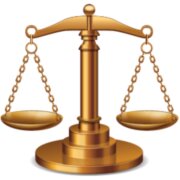Best Gaming Lawyers in Bangkok
Share your needs with us, get contacted by law firms.
Free. Takes 2 min.
List of the best lawyers in Bangkok, Thailand
About Gaming Law in Bangkok, Thailand
Gaming in Bangkok, Thailand is regulated under strict laws, largely due to the country’s historical and cultural perspectives on gambling. The primary legislation governing gaming activities is the Gambling Act 1935, which broadly prohibits most forms of gambling unless specifically permitted by law. Despite these restrictions, there is a vibrant scene of legal and illegal gaming activities, often associated with cultural events and festivals. Legal gaming is mostly limited to government-sanctioned lotteries and betting on horse racing. Recently, there have been discussions on regulating online gaming and casinos to curb illegal activities and boost tourism revenue.
Why You May Need a Lawyer
There are numerous situations where you might need legal assistance in the context of gaming in Bangkok. You may require help if you're planning to invest in or operate a gaming business, need to ensure compliance with local laws, or are facing legal charges related to illegal gaming activities. Other scenarios include disputes over payments, internet gaming issues, or needing guidance on tax implications. Having a lawyer can help navigate complex legal frameworks, provide valuable counsel, and represent your interests in legal proceedings.
Local Laws Overview
The core legal framework governing gaming in Bangkok is the Gambling Act 1935. The act outlines what constitutes legal and illegal gaming activities. Illegal gambling can carry severe penalties, including fines and jail time. Exceptions are state-run lotteries and horse race betting, which are regulated and taxed by the government. Furthermore, discussions are ongoing about amending laws to incorporate legal online gaming and casino operations. It's crucial for operators and participants to understand these laws to avoid unintentional breaches.
Frequently Asked Questions
What forms of gambling are legal in Bangkok, Thailand?
Legal forms of gambling include government lottery and betting on horse races at authorized venues. Most other forms of gambling are illegal.
Are online gaming and gambling legal in Thailand?
Online gambling is not currently permitted under Thai law, though there are ongoing debates about potential legalization and regulation.
What are the penalties for illegal gambling?
Penalties can include hefty fines and imprisonment for participating in or facilitating illegal gambling activities.
Can foreigners partake in legal gambling activities?
Yes, foreigners can legally participate in government lotteries and horse race betting.
Is there a move towards legalizing casinos in Bangkok?
There are discussions at the governmental level about legalizing casinos to boost tourism and reduce illegal gambling, but no legislation has been passed yet.
How can I report illegal gambling activities?
Illegal activities can be reported to local law enforcement agencies or the Thai Police.
Are gaming machines legal in Bangkok?
No, gaming machines, such as slot machines, are illegal under the current laws.
Do I need to pay taxes on gaming winnings?
Yes, winnings from legal gaming activities are subject to taxation. It's advisable to consult with a tax advisor for specific guidance.
Are there any exemptions for cultural events?
Some traditional games played during cultural festivals may have exemptions, but these are specific and limited.
Where can I find legal gaming in Bangkok?
Legal gaming is limited to government-run activities like the state lottery and horse racing events.
Additional Resources
For more information on gaming laws and assistance, you may consider the following resources:
- The Thai Gaming Board, which oversees legal gaming operations.
- The Ministry of Finance, responsible for lottery operations and gaming tax policies.
- Local legal firms specializing in gaming law.
- Non-governmental organizations that monitor and report on gaming activities.
Next Steps
If you require legal assistance in gaming, it's advisable to consult with a lawyer who specializes in this field. You can start by researching legal firms with a strong practice in gaming law. Additionally, it may be beneficial to attend legal seminars or workshops to gain a better understanding of the current gaming legal landscape in Bangkok. Always ensure that your chosen legal representation is well-versed with the latest developments in gaming law to adequately safeguard your interests.
Lawzana helps you find the best lawyers and law firms in Bangkok through a curated and pre-screened list of qualified legal professionals. Our platform offers rankings and detailed profiles of attorneys and law firms, allowing you to compare based on practice areas, including Gaming, experience, and client feedback.
Each profile includes a description of the firm's areas of practice, client reviews, team members and partners, year of establishment, spoken languages, office locations, contact information, social media presence, and any published articles or resources. Most firms on our platform speak English and are experienced in both local and international legal matters.
Get a quote from top-rated law firms in Bangkok, Thailand — quickly, securely, and without unnecessary hassle.
Disclaimer:
The information provided on this page is for general informational purposes only and does not constitute legal advice. While we strive to ensure the accuracy and relevance of the content, legal information may change over time, and interpretations of the law can vary. You should always consult with a qualified legal professional for advice specific to your situation.
We disclaim all liability for actions taken or not taken based on the content of this page. If you believe any information is incorrect or outdated, please contact us, and we will review and update it where appropriate.














